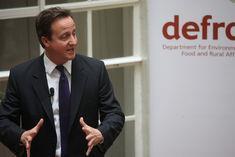
The industry is demanding answers from prime minister David Cameron over the future of the School Fruit and Vegetable Scheme remains unclear.
The Fresh Produce Consortium (FPC) wrote to Cameron and health minister Anne Milton after it received an inadequate response on the issue from the department of health (DoH).
A DoH source said that the department did not know what options there would be until the outcome of the next spending review in October.
In an article in which it dubbed Milton the “milk-snatcher” after she tried to withdraw funding of free milk for under-fives, The Sunday Times reported that Milton told suppliers that from April next year the scheme would no longer be funded directly by central government and its future depended on whether primary care trusts (PCTs) were prepared to find new money. The PCTs are due to be scrapped and it is thought local authorities will take on health duties.
The paper also reported that a separate memo circulated to suppliers by the NHS Supply Chain confirms Milton’s comments and said that officials running the scheme believe that without central funding the scheme will disappear.
Two suppliers to the scheme told FPJ no such correspondence had been received and they were still unsure as to the future of the healthy eating drive for four to six-year-olds.
FPC has received a response from the Department of Health that no decision has been taken with regard to the Primary Care Trust’s funding of the School Fruit and Vegetable Scheme. The Department stated that it did not know what options there would be until the outcome of the next spending review.
The scheme was launched in 2000 and is now run by the NHS Supply Chain. The scheme provides two million children in more than 16,000 schools with a free piece of fruit or vegetable every day, securing extensive coverage of around 99 per cent of eligible schools. It is thought savings of around £40 million could be made from its disposal.
The FPC said: “Companies who are involved in the scheme have been provided with a template letter and briefing statement to write to local MPs to enlist their support for the scheme, and are also contacting schools to galvanise their support, and to encourage parents and children who benefit from the scheme to join in.
“It’s important that we sustain this in the build up to the spending review in October, and we shall also be enlisting broader support from health campaigners…The scheme currently works very efficiently because it is centralised.”